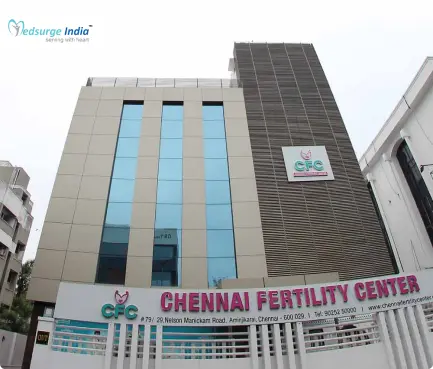
The most frequent cancer to affect the female reproductive system is uterus cancer. Healthy cells in the uterus begin to change and grow out of control, forming a mass known as a tumor, which is how uterine cancer develops.
The options for uterus cancer treatment in India and recommendations depend on the type and stage of cancer, potential side effects, general health, age, and personal preferences. This includes your fertility – the ability to have children and whether or how treatment will affect it.
Uterus cancer treatment cost in India can vary from case to case, so a highly specialized exam is advised to determine the best course of action. Several external factors also have an impact on the cost of uterus cancer treatment in India and the quality of care, which includes the course of treatment, the type of room, and many other factors.
What is Uterus Cancer
Uterine cancer, also known as endometrial cancer, is a type of cancer that first affects the uterus. In women, the uterus, a hollow, pear-shaped pelvic organ, is where the development of the fetus takes place. It starts in the endometrium, a layer of cells that makes up the uterine lining. Women with this cancer are typically diagnosed when they are young because they have unexpected vaginal bleeding and need to see a doctor. If endometrial cancer is discovered early and the uterus is surgically removed, it can be easily treated.
Types of uterus cancer are as follows:
- Endometrial adenocarcinoma: This cancer is one of the most prevalent types of uterine cancer and begins in the endometrial glands. Uterine cancer typically falls under the category of adenocarcinoma, though the severity varies.
- Papillary serous carcinoma: Even if it is detected early on, this cancer, which makes up 5% of endometrial cancer, has a chance of recurring.
- Uterine sarcoma: This kind of cancer grows in the uterine muscle wall. Although this type of uterine cancer is one of the rarest, it spreads quickly.
- Adenosquamous cancer: This includes two types of cells, squamous cells, and gland-like cells, and makes up about 10% of uterine cancer.
Recommended Read: Treatment for Uterine Cancer
What Are the Symptoms of Uterine Cancer
Uterine cancer symptoms can resemble those of many different diseases. That is particularly true for other diseases affecting the reproductive organs. Speak with your healthcare provider if you experience any unusual pain, leaking, or bleeding. It’s extremely important to have a correct diagnosis so you can receive the best care.
Symptoms of endometrial cancer or uterine sarcoma include:
- Bleeding from the vagina in between periods before menopause.
- Postmenopausal vaginal bleeding or spotting, even a little bit.
- Below your belly, in your pelvis, you may experience lower abdominal pain or cramping.
- A thin, clear, or white vaginal discharge if you’ve recently gone through menopause.
- If you are older than 40, vaginal bleeding is exceptionally prolonged, heavy, or frequent.
What Are the Causes of Uterus Cancer
The exact causes of uterus cancer are unknown. But it is acknowledged that a genetic mutation in endometrial cell DNA is the cause of this disease. Because of this genetic mutation, normal cells start to behave abnormally. Healthy cells have a predetermined rate of growth, multiplication, and demise. However, abnormal cells also multiply at an abnormal rate and don’t even pass away at a predetermined time. These abnormal cells develop into a mass or tumor as they accumulate. Cancerous cells can spread to other body cells and have an impact on nearby healthy cells.
The risk factors of developing uterine cancer may be increased by the following factors:
- Age
- Obesity
- Race
- Genetics
- Type 2 Diabetes
- Other Cancers
- Tamoxifen
- Radiation Therapy
- Diet/Nutrition
- Estrogen
You may be more likely to develop uterine cancer if you have above mentioned certain risk factors. If you’re at high risk, talk to your healthcare provider about steps you can take to protect your health.
How the Diagnosis of Uterus Cancer
For the diagnosis of uterine cancer, numerous tests are used. Not every test mentioned here will be applied to every person. When selecting a diagnostic test, your doctor may take into account the following:
- Cancer type that is suspected
- A list of your symptoms
- The age and your overall health
- The study results of earlier medical tests
Uterus cancer can be identified through the following tests in addition to a physical examination:
- Pelvic examination
- Endometrial Biopsy
- Dilation and Curettage
- Transvaginal Ultrasound
- CT scan & MRI
- Biomarker testing of the tumor
Your doctor will go over the results of the diagnostic tests with you after they are completed. Additional testing will be carried out to determine the extent of the disease’s growth if cancer is the diagnosis. This helps to guide the type of treatment that will be required and aids in grading and staging the disease.
Uterus Cancer Treatment Cost in India
Uterus Cancer Treatment Cost in India between Rs. 80,000 to Rs. 7 Lakh (approximately $1000 to $8300). The price of the treatment will differ based on the treatment type in accordance with the patient’s condition.
| Treatment | Estimated Cost(USD) | Estimated Cost(INR) |
| Chemotherapy | $500 to $2500 | 41,000 to 2.1 Lakh |
| Radiation Therapy | $2800 to $6000 | 2.3 Lakh to 5 Lakh |
| Targeted Therapy | $1500 to $3500 | 1.25 Lakh to 3 Lakh |
| Immunotherapy | $1200 to $4000 | 1 Lakh to 3.3 Lakh |
| Surgery | $3500 to $8000 | 3 Lakh to 6.6 Lakh |
Factors Affecting Cost Of Uterus Cancer Treatment in India
The cost of Spine Tumor Surgery in India can depend on a variety of factors:
- The hospital, the patient chooses
- Fee for the medical group and OT costs
- cost of medications
- Standard test and diagnostic procedures
- Follow–up care is required after the procedure
- chemo/radiation cost
- Uterus Cancer Treatment Cost in India can depend on the type of hospital and rooms you stay.
For foreign patients traveling to India, Medsurge India provides the finest Uterus Cancer Treatment in India at a reasonable cost, all while being supervised by top medical professionals.
Get Free Cost Estimation
Procedure
How is Uterus Cancer Treated
The doctor will determine the best course of treatment for you based on the severity of your cancer, its stage, form, and features, as well as your age and general health.
There are typically four different options for the treatment of uterus cancer in India. Most often, these uterine cancer treatment options are used in combination with one another. The following treatment will be recommended by the multidisciplinary team:
Surgery:
This is the most common type of uterine cancer treatment. The uterus is typically removed during a procedure along with the ovaries and fallopian tubes. As a result of having no ovaries, the woman underwent menopause after the surgery and was unable to conceive children. If the surgeon suspects that cancer may have spread, the surrounding tissues and organs are also examined. The lymph nodes can also be examined concurrently.
Uterine cancer is typically treated primarily with surgery. The surgeon will likely perform a hysterectomy on you and remove your uterus and cervix. Three different hysterectomy procedures are available:
- Total abdominal hysterectomy
- Vaginal hysterectomy
- Radical hysterectomy
- Minimally invasive hysterectomy
Radiation therapy:
After surgery, this procedure may be used to decrease the risk of cancer recurrence. Surgery can also be performed on its own if the patient is not healthy enough or suitable for it. Typically, radiation therapy is administered with the help of an external machine that transmits strong x-ray rays to destroy cancer cells. However, it can also be done using a radiation device that is inserted inside the vagina for a short duration of time.
Chemotherapy:
In this type of therapy, drugs are used to kill cancer cells. Patients may receive a single medication or a combination of drugs that are either administered orally or intravenously. Chemotherapy is typically advised in cases where cancer has spread outside of the uterus.
Hormone Therapy:
If cancer has spread outside of the womb, this type of therapy is recommended. It works by regulating the levels of hormones in the body. Hormones are administered to the body in order to either elevate progesterone levels or lower estrogen levels.
Also read: Treatment Types of Uterine Cancer
Can Uterus Cancer be Preventable
Although there is no specific treatment for uterine cancer, there are ways to reduce the risk, such as:
- Physical activities: Women should exercise regularly because doing so lowers their risk of developing certain diseases. Adopting a healthy lifestyle can prevent endometrial cancer from occurring.
- Proper weight: A woman’s risk of developing endometrial cancer increases three times if she is obese.
- Getting treatment for uterine issues: If you are experiencing any issues with uterine cancer, you should see a doctor because doing so can reduce your risk.
How Fatal is Uterine Cancer
When uterine cancer spreads and is left untreated, it is fatal. 95% of patients with uterine cancer who have not spread outside of the womb survive. When cancer spreads to organs other than the uterus, the survival rate drops to 17%. A good prognosis is largely dependent on early detection and treatment.
Uterine cancer is easier to determine and treat in its early stages, and for the same reason, it has a much higher survival rate than other types of cancer.
Between 80 and 90 % of uterine cancer patients are thought to survive within the first five years of their diagnosis. On the other hand, the survival rate after 10 years is close to 79%. When uterine cancer is the only cancer present, this is true.
Your care team will discuss your follow-up appointments with you after your treatment is over. Attending these appointments is important. Your doctor will perform a pelvic exam at the subsequent appointment. You’ll be questioned about any symptoms as well. The objective is to ensure that cancer has not returned and that you are recovering well from treatment.
You can also discuss ways to lead a healthier life after cancer with your healthcare provider. You can feel your best by eating well, getting enough sleep, and exercising.
Best Oncologist in India
- Dr. Vinod Raina
- Dr. Ankur Bahl
- Dr. Prasad
- Dr. Niranjan Naik
- Prof. Dr. Suresh H. Advani
- Dr. Rajesh Mistry
- Dr. Raja Sundaram
Why Do Individuals Prefer to Have Uterus Cancer Treatment in India
The country has some of the best medical care facilities and services in Asia, making medical tourism in India very popular. The best Hospitals for Uterus Cancer Treatment in India provide all types of cancer-related surgeries using advanced technology. Also, Uterus Cancer Treatment in India is much more affordable as compared to other states or nations around the world. An international patient can expect to pay 50-60% less for Uterus Cancer Treatment in India.
The hospitals for Uterus Cancer Treatment in India provide comprehensive appropriate treatment, including comprehensive pre-operative evaluations, minimally invasive surgical options, and post-operative rehabilitation programs. At these medical facilities, patients may anticipate personalized care, individualized attention, and compassionate treatment. Leading international agencies like the Joint Commission International (JCI) or the National Accreditation Board for Hospitals and Healthcare Providers (NABH) have accredited the hospitals.
Best Cancer Treatment Hospitals in India
- Fortis Hospital Gurgaon
- Indraprastha Apollo Hospital New Delhi
- Manipal Hospital Dwarka, Delhi
- Fortis Hospital Noida
- HCG Cancer Centre, Bangalore
- Amrita Hospital, Faridabad
- Apollo Hospitals, Greams Road, Chennai
- BGS Gleneagles Global Hospitals, Bangalore
What to Look for When Choosing a Hospital For Uterus Cancer Treatment in India?
Indian hospitals that perform surgery are well-known for their hospitality and patient care services providing the finest hospital and surgeons in India. However, choosing a suitable hospital for treating Uterus Cancer Treatment in India can be difficult for an international patient. It is a significant decision that must be made with several factors in mind, including:
- Quality certificates and accreditations
- Hospital and transportation facility location
- Team of doctors and surgeons
- Advanced diagnostic and therapeutic equipment
- International patient assistance
How Can Medsurge India Help?
Medsurge India is a prestigious support system for patients looking for doctors, hospitals, and specialized treatments. Our staff will provide you with a list of licensed, renowned, and trustworthy physicians and medical facilities in relation to your medical needs. Additionally, we offer a treatment strategy that fits your budget. Apart, we assist patients with obtaining travel authorizations, medical visas, and a multitude of other things
The Most Important Frequently Asked Questions
Q: What Is the Most Effective Treatment for Uterus Cancer?
A: Endometrial cancer is typically treated with surgery to remove the uterus, fallopian tubes, and ovaries. Another option is high-energy radiation therapy. Endometrial cancer drug treatments include chemotherapy with powerful drugs and hormone therapy to block hormones that cancer cells rely on.
Q: How Is Uterus Cancer Removed?
A: The following are some of the most common uterine cancer surgical procedures: Hysterectomy. The surgeon will perform either a simple hysterectomy (removal of the uterus and cervix) or a radical hysterectomy, depending on the extent of cancer (removal of the uterus, cervix, the upper part of the vagina, and nearby tissues).
Q: Where Does Uterine Cancer Spread First?
A: Endometrial cancer is a type of cancer that begins in the uterine lining, known as the endometrium. It occurs when endometrium cells proliferate uncontrollably and crowd out normal cells. Endometrial cancer cells can spread and grow in other parts of the body, such as the vagina or liver.
Q: Can You Beat Uterine Cancer at Stage 4?
A: Unfortunately, in patients with stage IV cancer, complete cancer removal is not usually possible. The location of metastatic cancer and symptoms related to cancer spread determine treatment for stage IV uterine cancer.
Q: How Fast Does Uterus Cancer Spread?
A: Endometrial cancer, the most common type (type 1), grows slowly. It is almost always found only inside the uterus. Type 2 diabetes is less common. It grows more quickly and spreads to other parts of the body.
Top Hospitals for Uterus Cancer Treatment in India
Top Doctors for Oncology and Oncosurgery
Dr. Ramakant Tayade
Senior Consultant
Experience: 20 years of experience
Wockhardt Super Speciality Hospital Nagpur
Nagpur, India
Dr. Praveen Kumar Garg
Senior Consultant
Experience: 26 years of experience
Indraprastha Apollo Hospital New Delhi
New Delhi, India
Dr Santanu Sen
Consultant
Experience: 14 years of experience
Kokilaben Dhirubhai Ambani Hospital Mumbai
Mumbai, India
Dr. Karan Gupta
Associate Consultant
Experience: 7 years of experience
Medanta – The Medicity, Gurgaon
Gurgaon, India
Dr. Somashekhar S. P.
Head of Department
Experience: 12 years of experience
Manipal Hospital (Old Airport Road) Bangalore
Bangalore, India
Dr. Parmod Kumar
Experience: 15+ years of experience
Max Super Speciality Hospital Dehradun
Dehradun, India
Dr. Rahul Chaudhary
Consultant
Experience: 18 years of experience
HCG EKO Cancer Centre, Kolkata
Kolkata, India
Dr. Pradeep Jain
Director
Experience: 33 years of experience
Fortis Hospital Delhi Shalimar Bagh
New Delhi, India
Dr. Sudha Sinha
HOD
Experience: 13 years of experience
Continental Hospitals, Hyderabad
Hyderabad, India
Dr. Jyoti Shanker Raychaudhuri
Consultant
Experience: 25 years of experience
Indraprastha Apollo Hospital New Delhi
New Delhi, India
Dr. Harsha Doddihal
Consultant
Experience: 15 years of experience
Fortis Hospital, Bangalore (Bannerghatta Road)
Bangalore, India
Dr. Yogesh Kulkarni
Consultant , MBBS, MD, DNB, Fellowship
Experience: 17 years of experience
Kokilaben Dhirubhai Ambani Hospital, Mumbai
Mumbai, India




































































